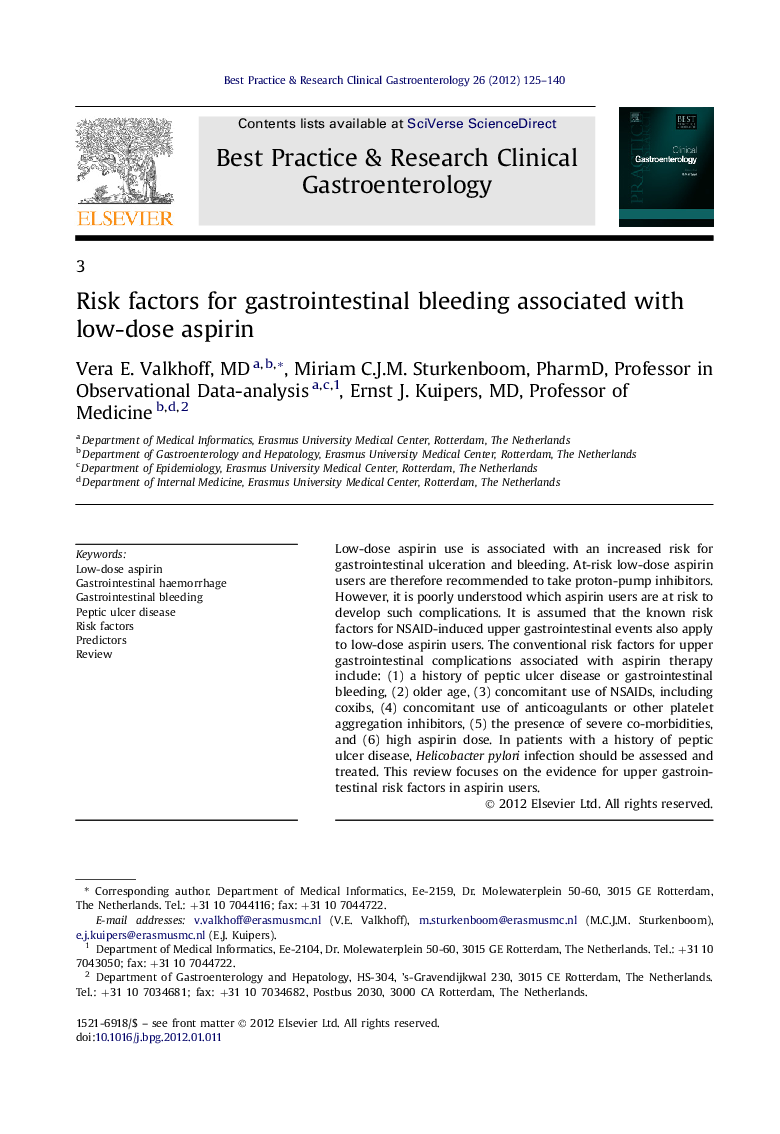| Article ID | Journal | Published Year | Pages | File Type |
|---|---|---|---|---|
| 3254645 | Best Practice & Research Clinical Gastroenterology | 2012 | 16 Pages |
Low-dose aspirin use is associated with an increased risk for gastrointestinal ulceration and bleeding. At-risk low-dose aspirin users are therefore recommended to take proton-pump inhibitors. However, it is poorly understood which aspirin users are at risk to develop such complications. It is assumed that the known risk factors for NSAID-induced upper gastrointestinal events also apply to low-dose aspirin users. The conventional risk factors for upper gastrointestinal complications associated with aspirin therapy include: (1) a history of peptic ulcer disease or gastrointestinal bleeding, (2) older age, (3) concomitant use of NSAIDs, including coxibs, (4) concomitant use of anticoagulants or other platelet aggregation inhibitors, (5) the presence of severe co-morbidities, and (6) high aspirin dose. In patients with a history of peptic ulcer disease, Helicobacter pylori infection should be assessed and treated. This review focuses on the evidence for upper gastrointestinal risk factors in aspirin users.
